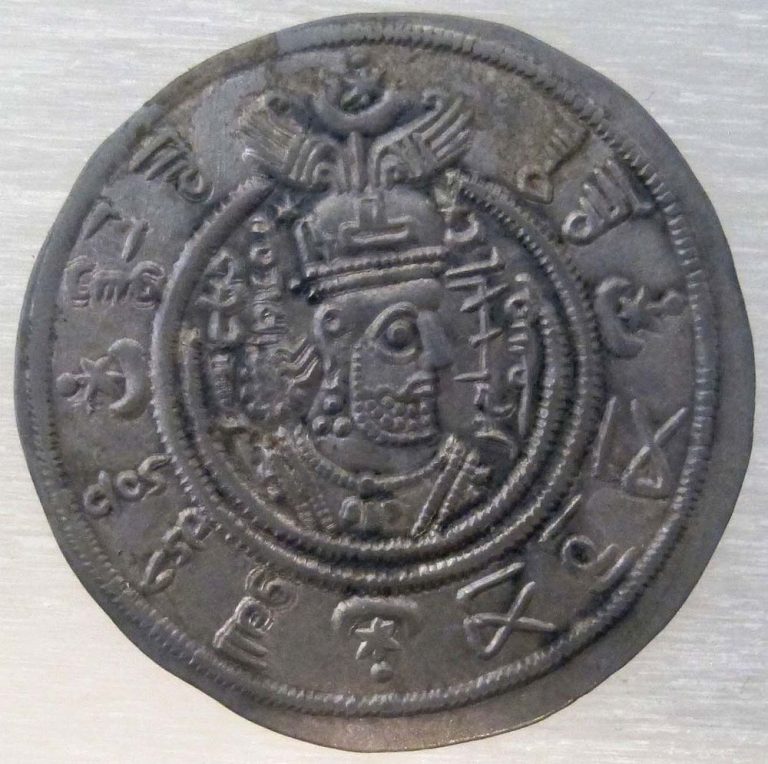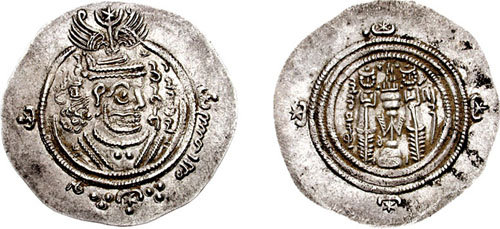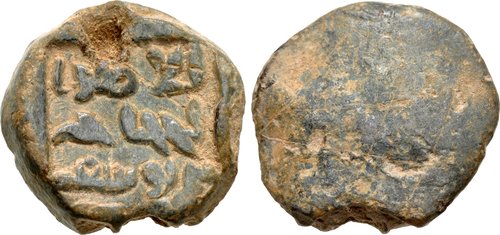
His stomach was infested by innumerable vermin. The temperature of his body decreased and he felt so intense cold that several stoves were placed close to him and yet he gained no relief.
Much has been written about Al-Hajjaj bin Yusuf al-Thaqafi, who was the Governor of Iraq and some parts of Iran. Al-Hajjaj was born (661 AD) in the city of Ta’if in the Hijaz, in modern-day Saudi Arabia. His name at birth was Kulayb, but later he changed it to al-Hajjaj. He was hostile to Shias. He was the person, under whose instructions and guidance, Muhammad Bin Qasim had attacked and plundered Sindh.
There is no much information about al-Hajjaj’s early life and his youth. Some scattered accounts imply that like his ancestors, he was a pitman, shepherd, and a tanner. Al-Hajjaj was ugly and short. Some historians say that he was a competent and eloquent orator. Historical sources show that he was a professional politician. He used tricks to win battles. Some historians characterized him as cruel, brutal, liar, and evil. In a reply to a letter from ‘Abd al-Malik, al-Hajjaj called himself a stubborn, jealous, and malicious person. He has also been remembered as a controversial Arab administrator, politician and minister of defence of the Umayyad caliphate.
Here are some historical accounts of Hajjaj Bin Yusuf.
Amongst the high officials of the Umayyad, no one acquired more fame than Hajjaj bin Yusuf. However, this fame was not acquired because of his generosity, but from his oppression. The tyranny of Hajjaj has become very famous in history.
The Umayyad was badly shaken after the death of Yazid bin Muawiyya, but it was Hajjaj who took over from this falling empire and strengthened them. The greatest threat to this empire was from Abdullah bin Zubair who was based in Makkah but his rule extended to the border of Syria. Hajjaj with his oppression laid siege to Makkah and killed Abdullah bin Zubair without any mercy on him.
 Hajjaj alone executed 125,000 men. He beheaded leaders like Sa’id bin Zubair. He put prominent scholars like Abdullah bin Umar and Abdullah bin Zubair (Allah be pleased with them) to death. Before being executing, Sa’id bin Zubair told him that now you will not be able to set out for anyone. On the saying of this by Said bin Zubair, Hajjaj bin Yusuf passed away within fifteen nights. Even the learned and the peaceful men of that era looked upon Hajjaj as a calamity and curse sent down by God.
Hajjaj alone executed 125,000 men. He beheaded leaders like Sa’id bin Zubair. He put prominent scholars like Abdullah bin Umar and Abdullah bin Zubair (Allah be pleased with them) to death. Before being executing, Sa’id bin Zubair told him that now you will not be able to set out for anyone. On the saying of this by Said bin Zubair, Hajjaj bin Yusuf passed away within fifteen nights. Even the learned and the peaceful men of that era looked upon Hajjaj as a calamity and curse sent down by God.
Hadhrat Hasan Basri (Rahmatullahi Alayhi) used to say, “Hajjaj is a calamity sent by God, do not try to remove him by force but ask Allah Taa’la.” Therefore, the moment the news of the death of Hajjaj was reported Hadhrat Hasan Basri and Umar bin Abdul Aziz fell in prostration to God and exclaimed,” The pharaoh of this nation is no more!
Let us now see how this tyrant ruler faced death.
After twenty years of rule over Iraq, Hajjaj fell ill at the age of fifty-four. His stomach was infested by innumerable vermin. The temperature of his body decreased and he felt so intense cold that several stoves were placed close to him and yet he gained no relief.
When Hajjaj lost all hopes of survival, he said to the members of his household, “Prop me up and assemble the people.” When the people arrived, he pleaded guilty to his sins and tyrannies. He gave a speech and emphasized on the fact of which he dwelt on death and its severities.
The following sentence came to his tongue:
The weight of my sins is as the weight of sky and earth,
Yet I hope that God will show me mercy.
***
Another website contains following account of Hajjaj.
Hajjaj was the bloodthirsty governor of Iraq and Iran. Unlike the rest of mankind he refused to take his mother’s breast after being born. It is said that Shaytan (Satan) appeared in human form and said he should be given the blood of animals and insects for four days.
After this, Hajjaj accepted his mother’s breast. It was this incident which caused him to become a mean and merciless man; indeed, for as long as he lived, he never once stopped killing people.
For twenty years he held the position of governor of Iraq and Iran. He was appointed by the merciless tyrant-kings of the Banu Ummayyah family.
Hajjaj, like his masters thirsted after the blood of his opponents. Hajjaj, this bestial tyrant was especially eager to kill the followers of ‘Ali, ‘alayhi ‘s-salam (peace be upon him), and his progeny.
His most pleasurable hours were spent torturing to death any of the friends and supporters of ‘Ali who were brought captive before him.
He enjoyed watching his innocent victims being dismembered and slowly bleeding to death before his pitiless eyes. During his rule, treachery, plundering and killing became so commonplace that one noted scholar has observed: If all the nations of the world were to each select their most despicable and hated criminals, either from modern times or past ages none would be baser, none more savage than Hajjaj.
Hajjaj was the enemy of mankind, the enemy of all that is fine and noble in man. He was a man who was appointed governor by those who themselves had usurped the caliphate of the Muslims. He was the enemy of Islam, the Prophet and especially and his supporters.
He was the source of the treachery and bloodshed committed by all the so- called Muslim rulers after him; and although he was, in reality, the bitterest enemy of the family of the Prophet, he tricked the people of that time by going to the mosques, giving advice to those present and even praying in congregation and in the Friday (jum‘ah) prayers.
His prison consisted of merely four walls — roofless and so open to the burning sun of summer or the bitter cold of winter.
 The innocent prisoners, all Muslims, Shi‘ahs and supporters of the struggle to establish Islam as a way of life were confined between these four walls and forced to endure the rigors of the climate!
The innocent prisoners, all Muslims, Shi‘ahs and supporters of the struggle to establish Islam as a way of life were confined between these four walls and forced to endure the rigors of the climate!
Even the surrounding rocks and hills trembled at their cries of pain and anguish; the hearts of Hajjaj and his torturers remained stonily impassive. Whenever the prisoners tried to move out of the burning heat of summer and seek the shelter of the shade cast by the walls, the merciless guards hurled stones and rocks at them or prevented them from approaching by stabbing at their defense- fewer bodies with their spears.
The prisoners were fed on bread mixed with ashes. After torturing and harassing the prisoners, most of whom were Muslims leading the struggle to establish true Islam, he had them put to death in the most brutal way. At the time of Hajjaj’s death there were thirty-three thousand men and women, sixteen thousands of whom were naked without even a blanket to cover themselves, still in his prison.
Hajjaj the tyrant — executioner had so many spies within the Muslim community that no one dared to even mention the name of ‘Ali, ‘alayhi ‘s-salam, or the members of his family.
Like Mu‘awiyah, Yazid and the rest of the Banu Ummayyah leaders he was extremely sensitive to the name of ‘Ali. He reacted in like manner even to the names of the important amongst the Shi’ah community. It was Hajjaj who tortured and killed the dearest and closest companions of ‘Ali, ‘alayhi ‘s-salam, such as Kumayl, Qanbar (the servant of ‘Ali) and Sa`id to name, but a few of the many hundred victims.
From the very beginning the government of Banu Ummayyah retained their political power through tyrannical oppression, torture, killing, corruption and plundering; their blue-print for government was based on the vilest desires and ambitions of man.
As we have seen, the reason why they killed all the courageous Muslims who were fighting in the way of Truth was the latter’s devoted allegiance to Ali, (‘A.S.); Hajjaj, the governor of Kufah, Sham (an area roughly corresponding to present- day Syria, Lebanon and Palestine) and Iraq, like all the Banu Ummayyah rulers were enraged at the mere mention of ‘Ali and his family.
Hajjaj dispatched his spies and agents after Sa‘id and others who were still free to have them captured and brought before him. Sa‘id took refuge in the large cities of Iran, fleeing from place to place in an attempt to throw off his pursuers.
At first he went to Isfahan later hid in the city of Qum and then moved on to the province of Adharbayjan in the north- west of Iran. From there he went to Iraq and finally sought safety in Makkah (Mecca). The governor of Makkah was a merciless, stony-hearted man like Hajjaj. As soon as Sa‘id and a number of noble Muslims tried to seek refuge in Makkah he arrested them and sent them in chains to the town of Kufah. All the
Muslims who were truly devoted to the cause of Islam hurried out to greet Sa‘id on his arrival.
The next day Sa‘id, his hands and neck bound tight in chains was brought before the blood thirsty Hajjaj.
As soon as the enemy of Allah, Hajjaj saw Sa‘id fear struck his heart; summoning up his courage he shamelessly began to question Sa‘id.
Hajjaj had an executioner brought before him and gave the order that the victim’s head be cut off — as usual under his pitiless gaze.
The executioner bound Sa`id’s hands behind his back and cut off his head as if he were a sheep. In his last moments alive Sa‘id said, “Ashhadu an la ilaha illa Allah, Ashhadu anna Muhammadan Rasul Allah”, (I witness that there is no god but Allah, I witness that Muhammad is the Messenger of Allah) ; then he turned to face the sky and said: “O Allah! Don’t allow Hajjaj any further respite; don’t give him the opportunity to kill others”.
It was at this very moment that the executioner severed the head from the body of this noble man and so further increased the number of crimes committed by Hajjaj. After this shahadah (a martyr’s death in the way of Allah) Hajjaj went into a strange mood and finally became mad. He only lived fifteen days more and during this period was unable to sleep.
His death was slow and painful. He would lose consciousness for a while only regain it and see before him the form of Sa‘id.
Such is the fate of the brutal tyrants of the world.
***
According to yet another account during the last days, he always saw Sa’id in his dreams telling him while grabbing his neck: “O the enemy of God! Why did you kill me?” At this moment, al-Hajjaj would woke up and said: “What has Sa’id to do with me?!”
Al-Hajjaj died in Ramadan or Shawwal, 95/June or July 714.
___________________
Courtesy: Inter Islam, Al-Islam, Military History, Wikishia